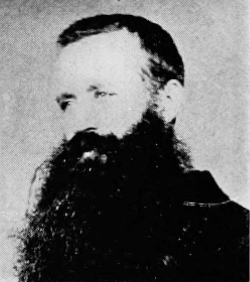
Jean-Marie Charles Abrial was a French Admiral and Naval Minister. He fought in both World wars, and was known mostly for his actions at Dunkirk in 1940.
Jules Marcel de Coppet was a French colonial administrator stationed in several countries in Africa before becoming governor-general of French West Africa.
Armand Pierre Angrand was a Senegalese politician, nobleman and writer and mayor of Gorée and Dakar in 1934. Son of Leopold Angrand (1859–1906), descendant of a prominent Métis Signares Goree. Grand son of Pierre Angrand, a rich merchant and shipowner and Helene de Saint-Jean (1826–1859), granddaughter of Estoupan of St. John, who signed the capitulation of Gorée 1758 against the British.

Gabriel marquis d'Arboussier was a Senegalese-French politician.
Princess Lalla Fatima Zohra was the eldest daughter of Mohammed V of Morocco and his first wife, Lalla Hanila bint Mamoun.

Paul Camboué was a French Jesuit priest, arachnologist, and entomologist.
Kibanga, formerly called Lavigerieville, is a settlement in the South Kivu province of the Democratic Republic of the Congo.

Pierre-Louis Tribert was a French politician. He was one of 116 permanent senators of the French Third Republic.

Paul Anthelme Bourde was a French journalist, author and colonial administrator. Self-taught, he became a respected contributor to Le Temps, writing on a broad range of subjects. He was hostile to the poets associated with the Decadent movement and positive about colonial enterprises. He did much to improve agriculture, particularly the cultivation of olives, in Tunisia.

Louis Pierre Hippolyte Ricard was a wealthy French lawyer and liberal politician. He was Minister of Justice in 1892 and again in 1895–96. He is best known for steering through the 1898 law on workplace accidents.

Jean-Baptiste Darlan was a French politician who was Minister of Justice in 1896–97.

Pierre-Marie-Élie-Louis Nouailhetas was a French naval officer who served as the governor of French Somaliland from 7 August 1940 until 21 October 1942 during World War II.

Paul Bourdarie was a French explorer, journalist, lecturer and professor. He became known as a specialist in colonial topics and gave lectures on subjects such as growing cotton and domesticating African elephants. He believed in a liberal policy regarding the indigenous people of the French colonies. Bourdarie was one of those responsible for founding the Grand Mosque of Paris.
Charles Monteil was a French civil servant who combined a career in administration with studies in the ethnology, languages, and history of French West Africa.

Gabriel Ferrand was a French orientalist, writer and linguistic expert who worked in Madagascar.
Marie-Louise Marchand-Thébault was a French historian and archivist, graduated in 1953 from the École Nationale des Chartes.
Étienne Taillemite was a French historian and archivist.

The tirailleurs malgaches were a corps of French colonial infantry established in Madagascar.
Princess Lalla Hanila bint Mamoun was the first wife of Mohammed V of Morocco, who reigned from 1927 to 1961. Lalla Hanila is the mother of Princess Lalla Fatima Zohra.

Solange Rosenmark was a French-language poet and novelist from Mauritius.












